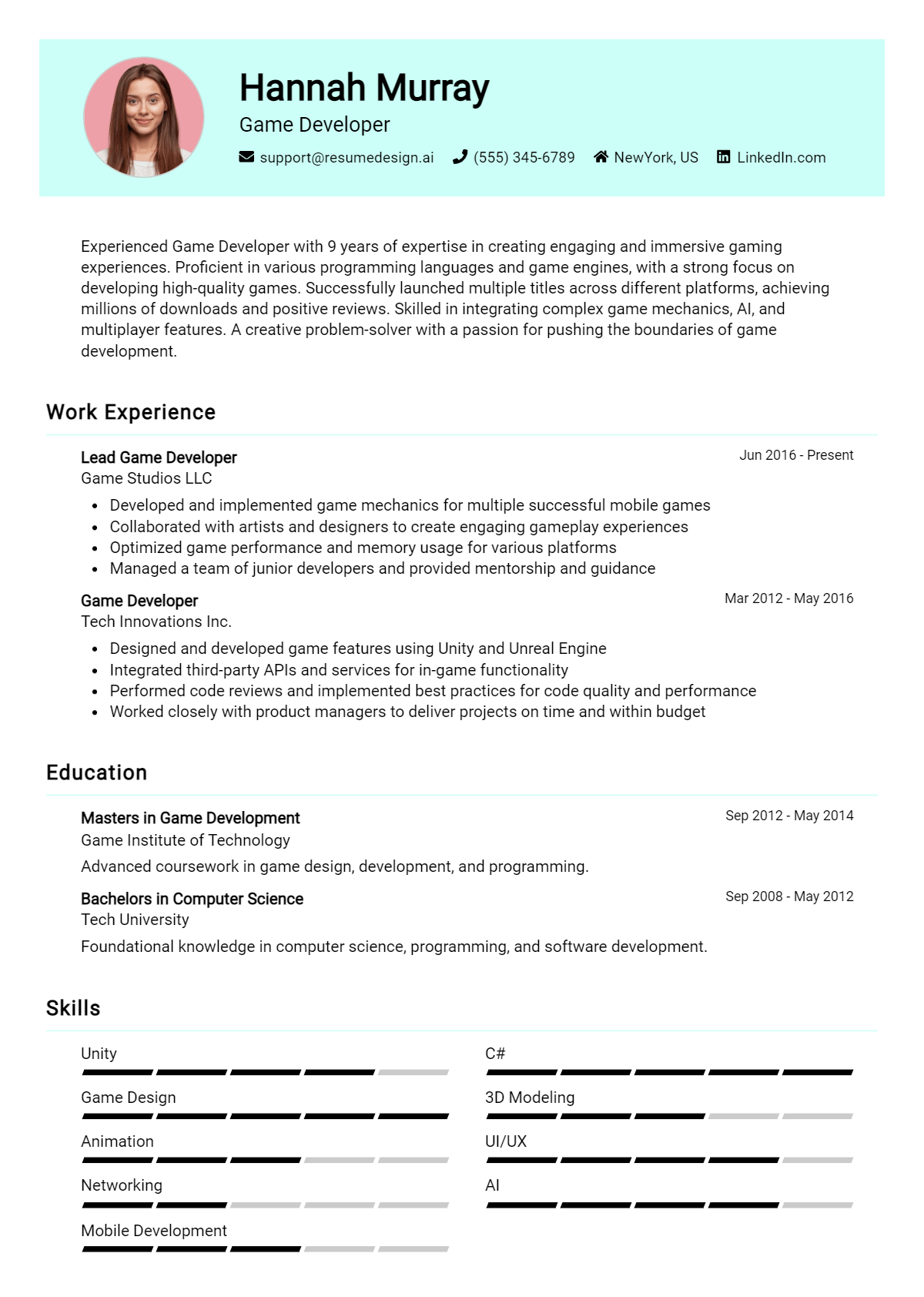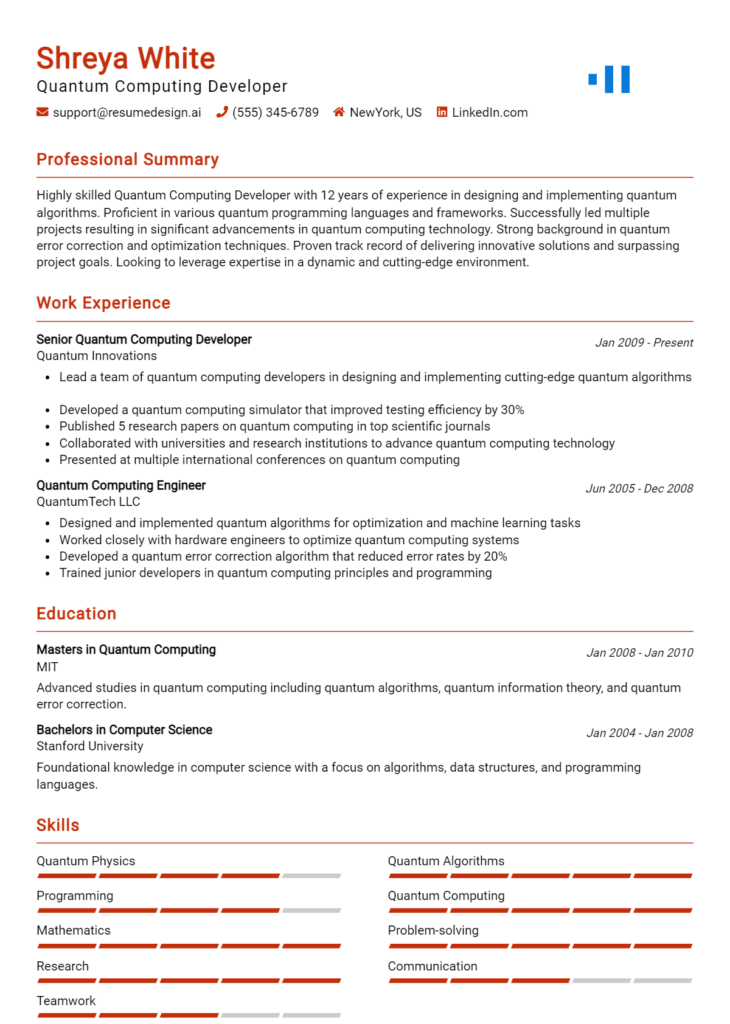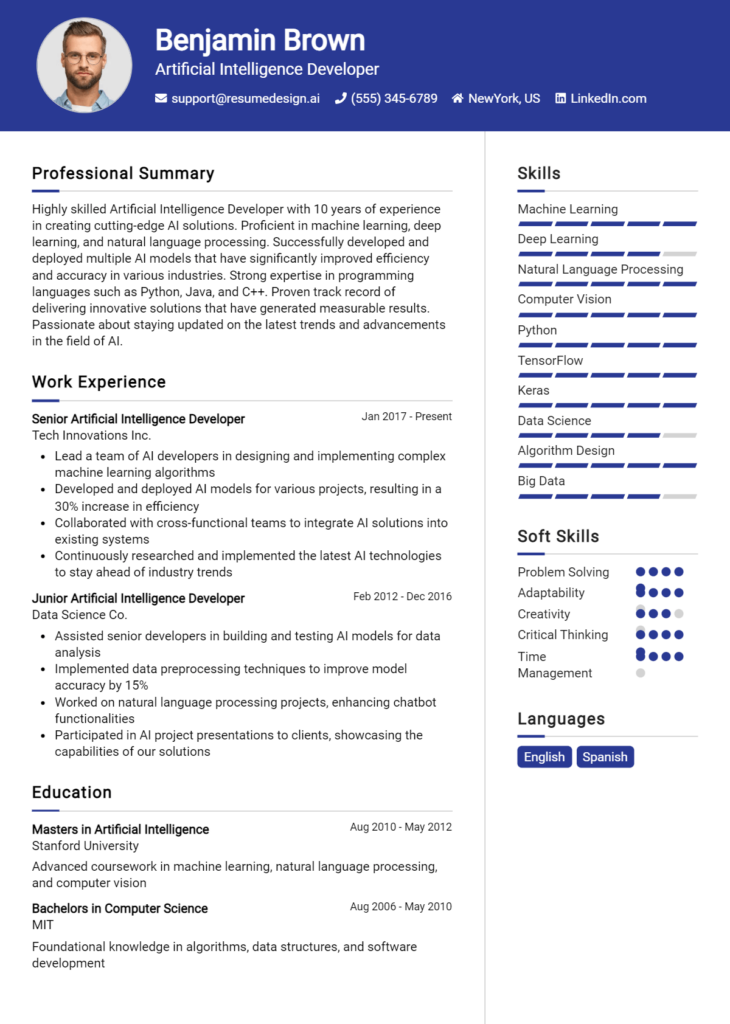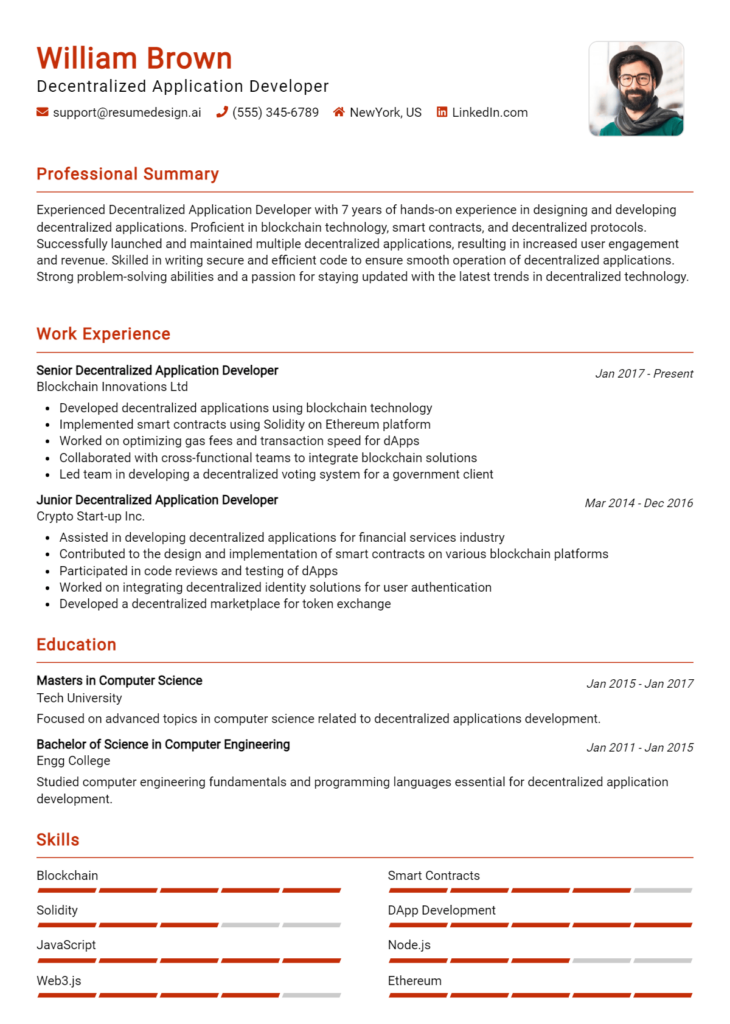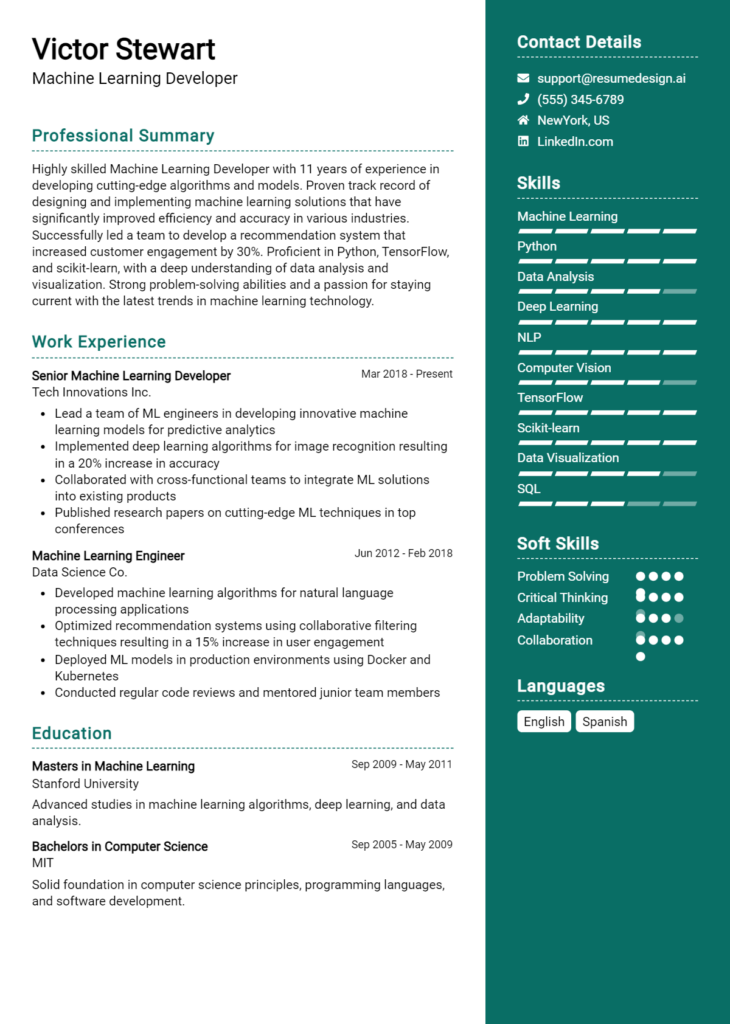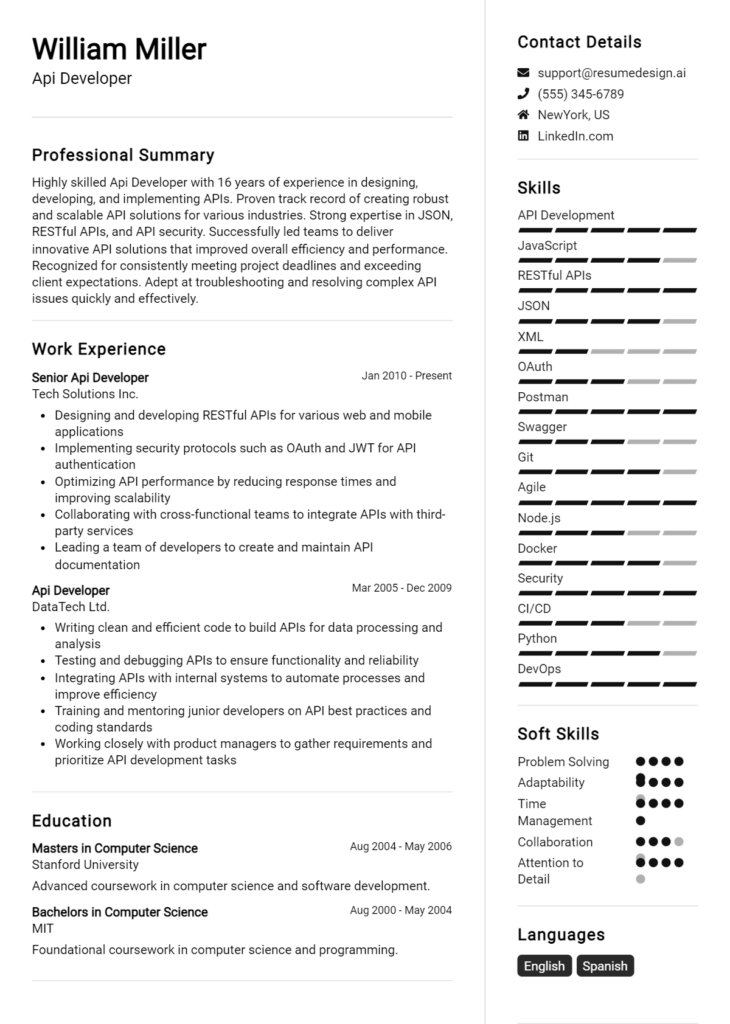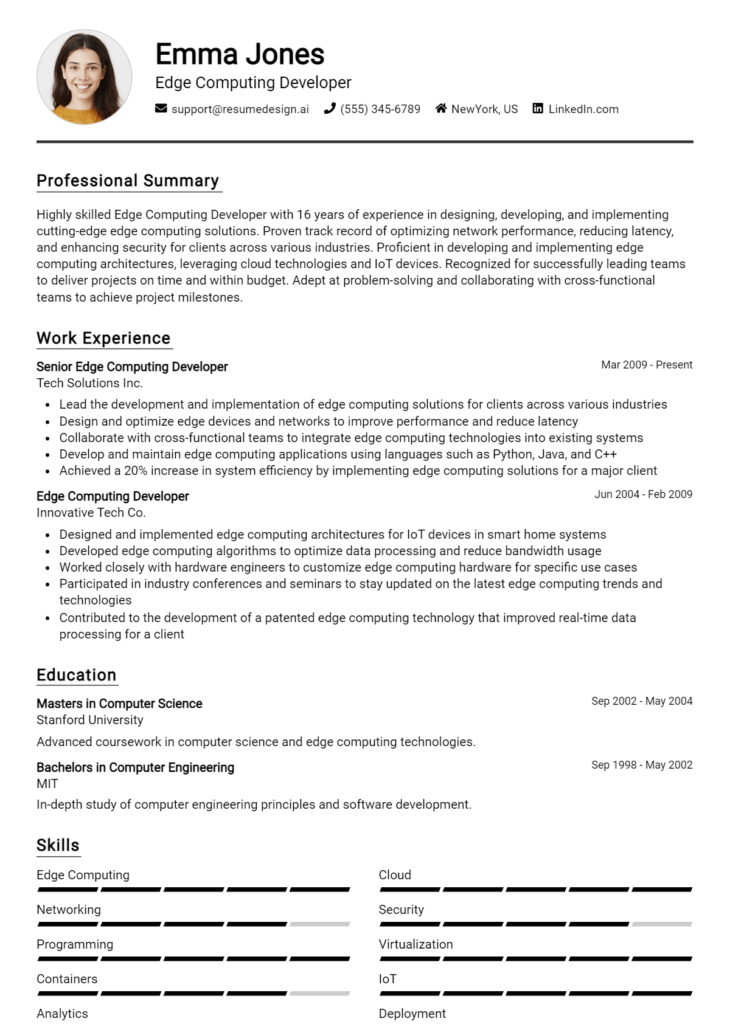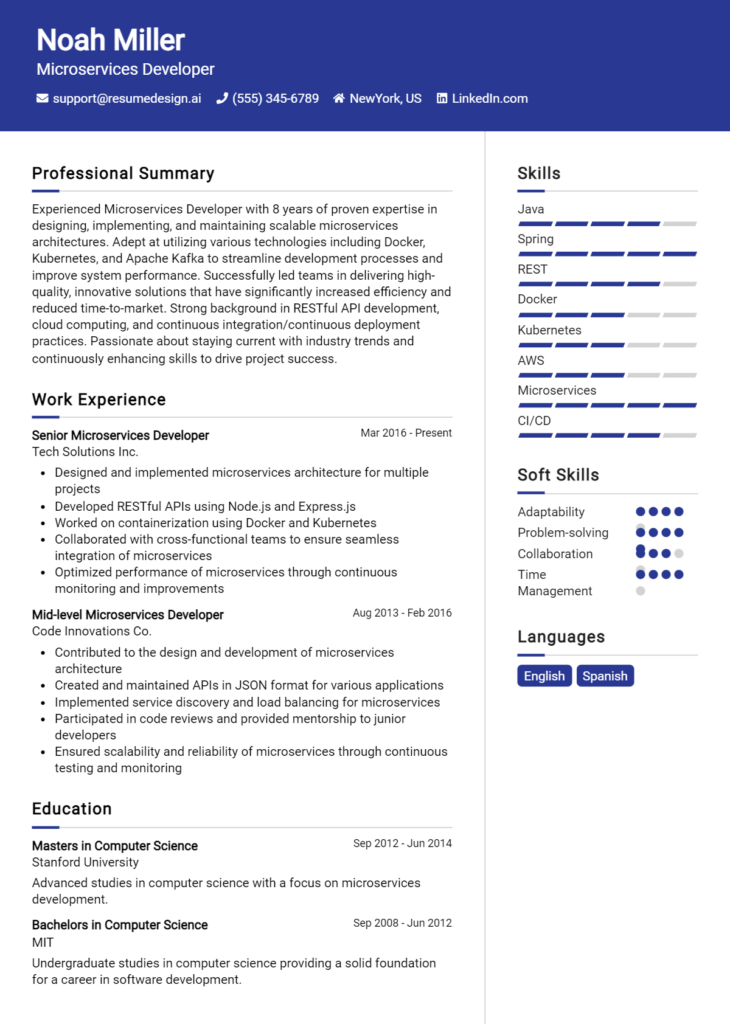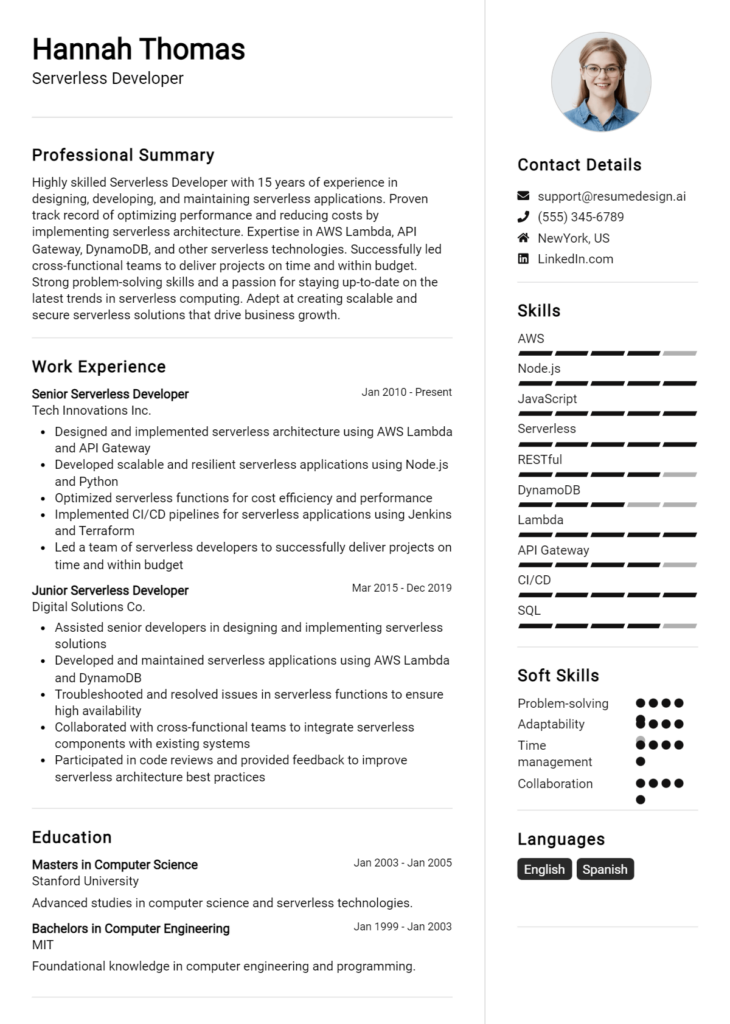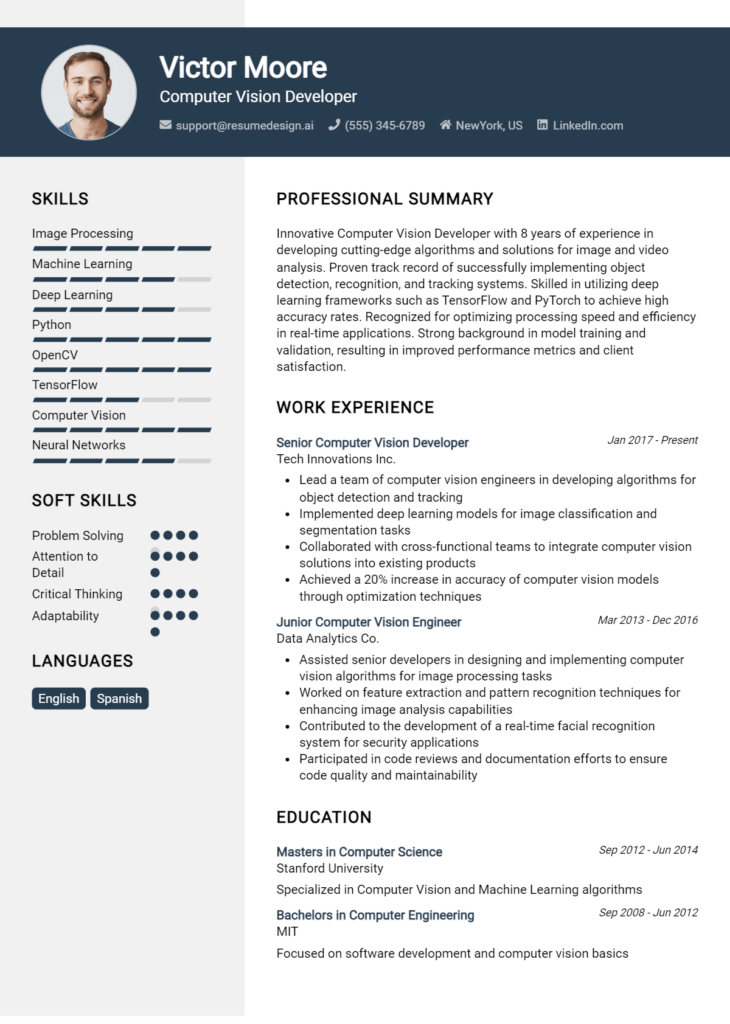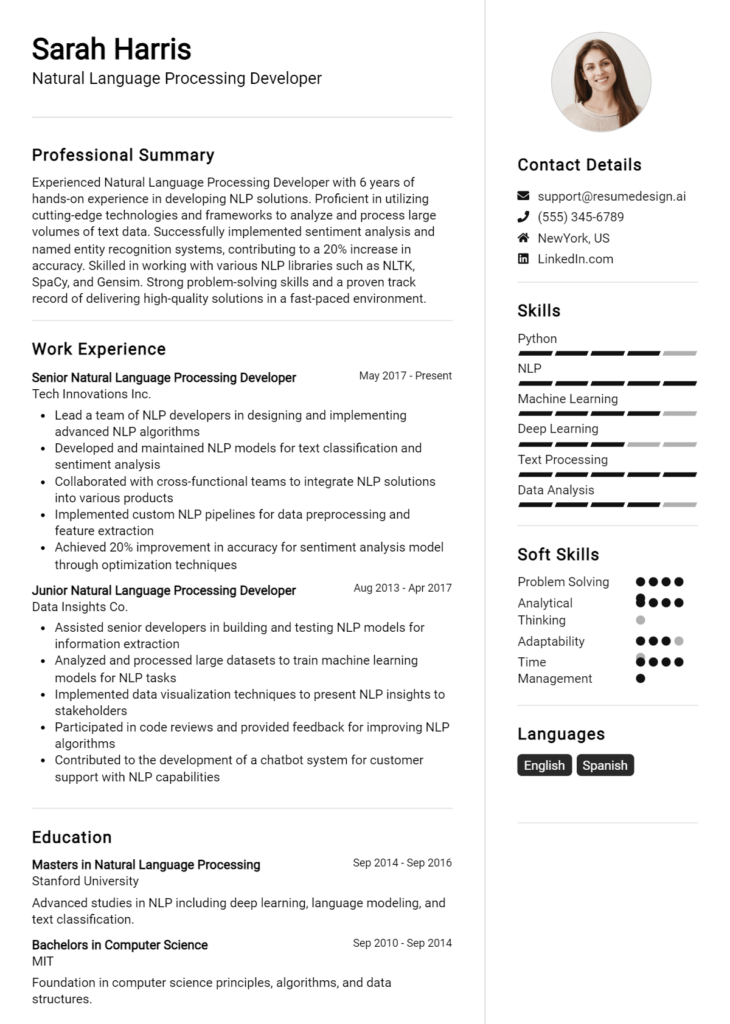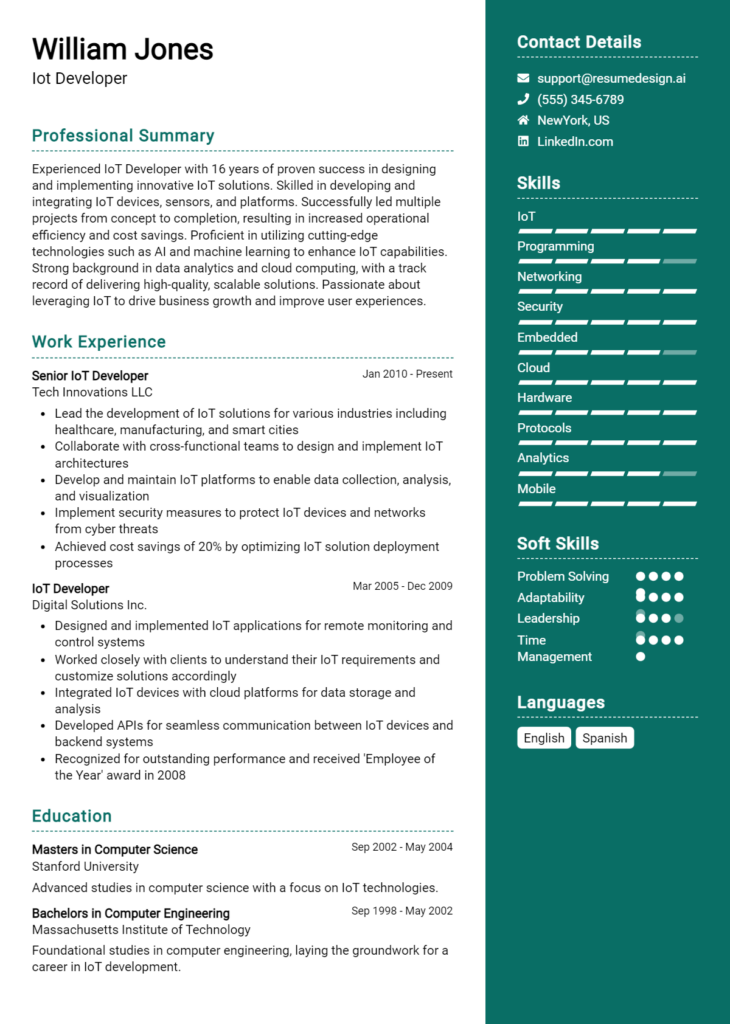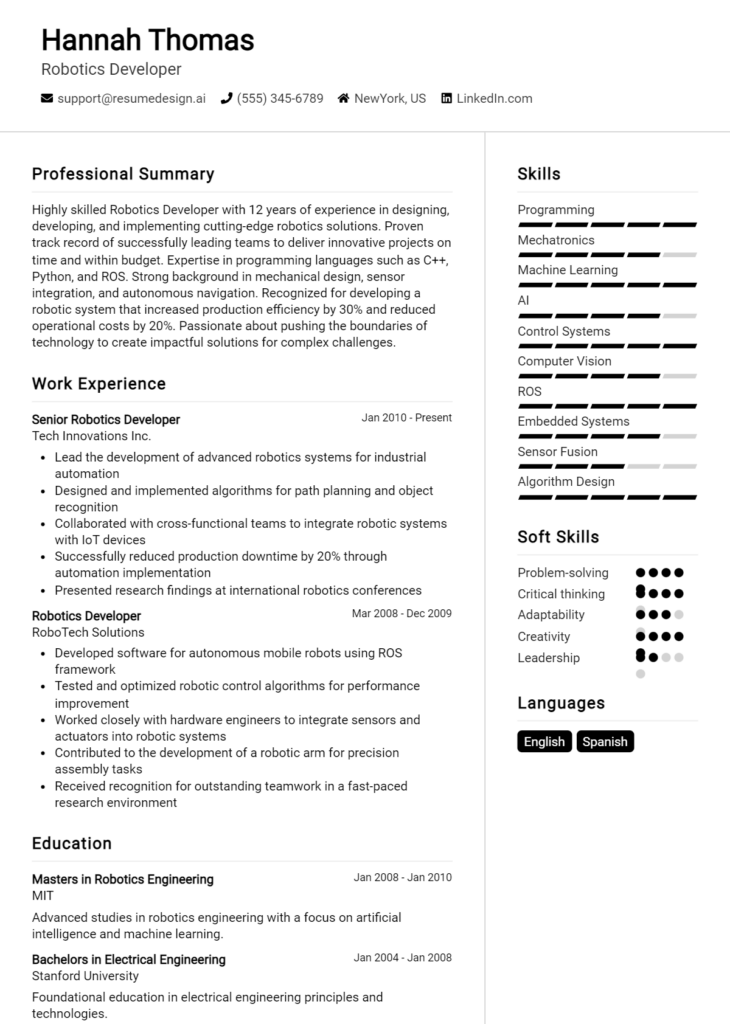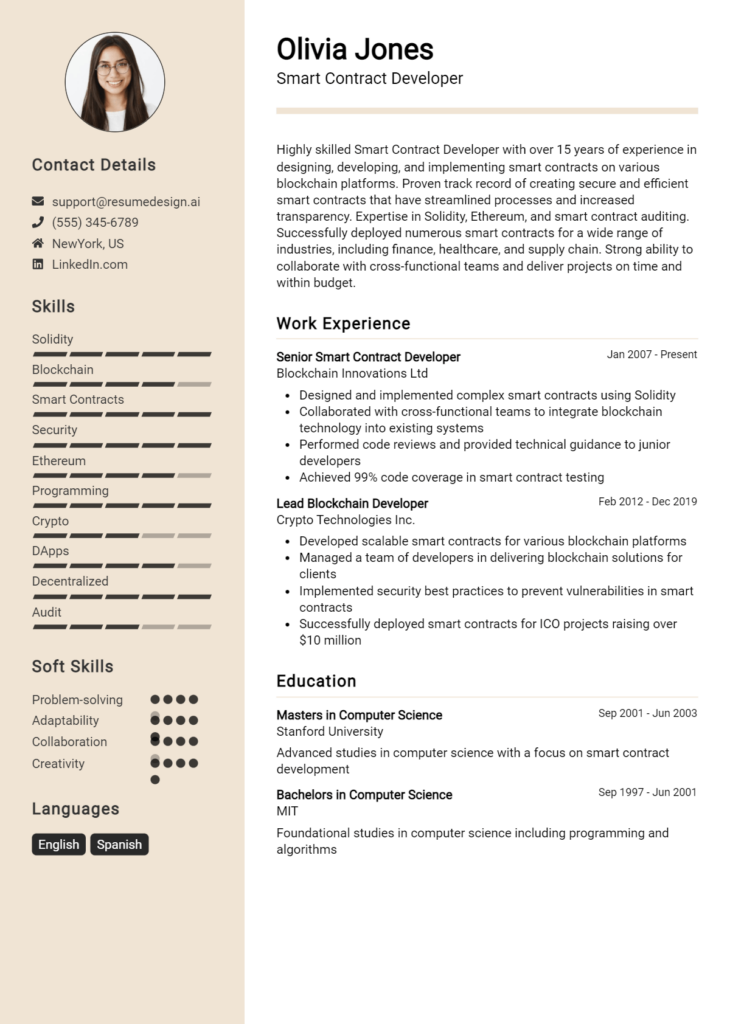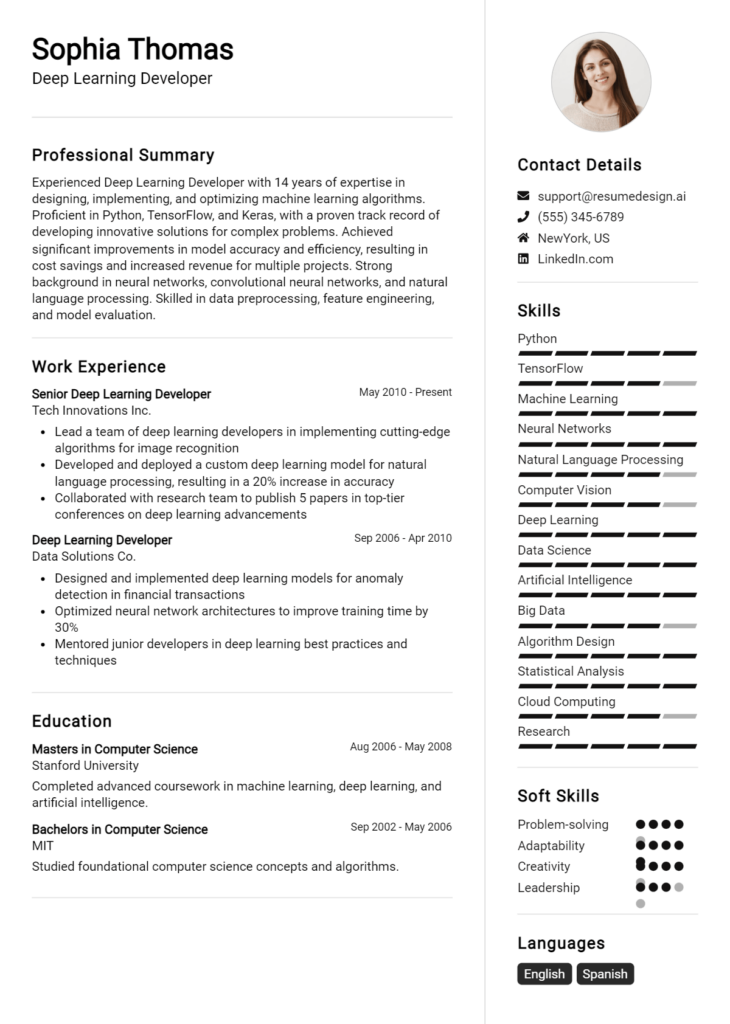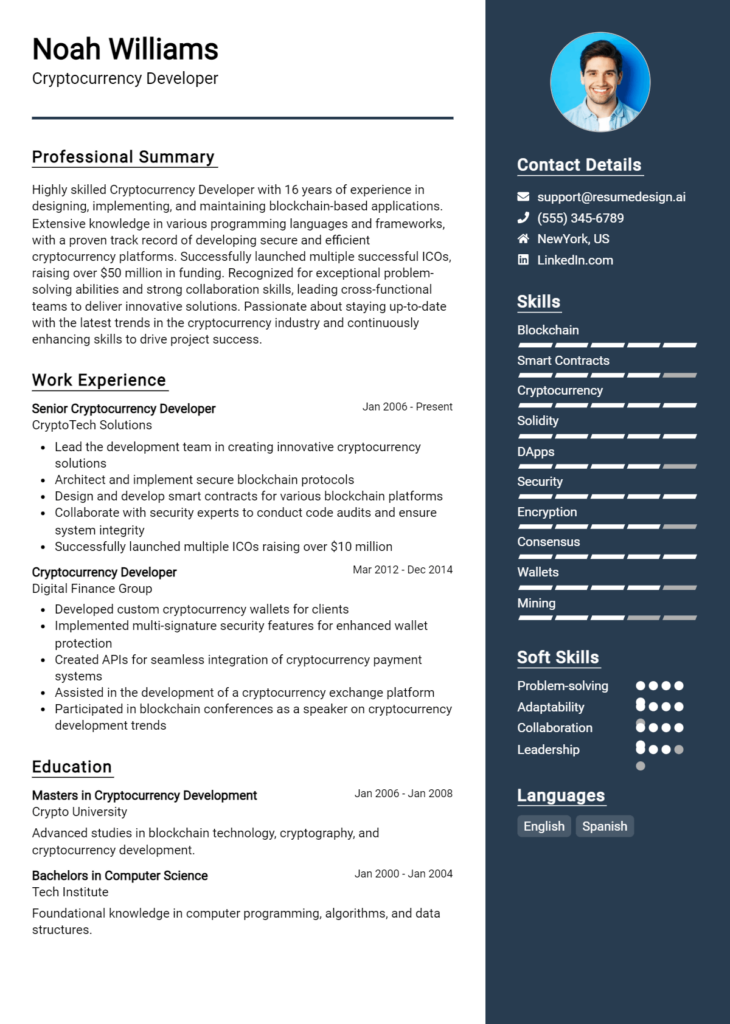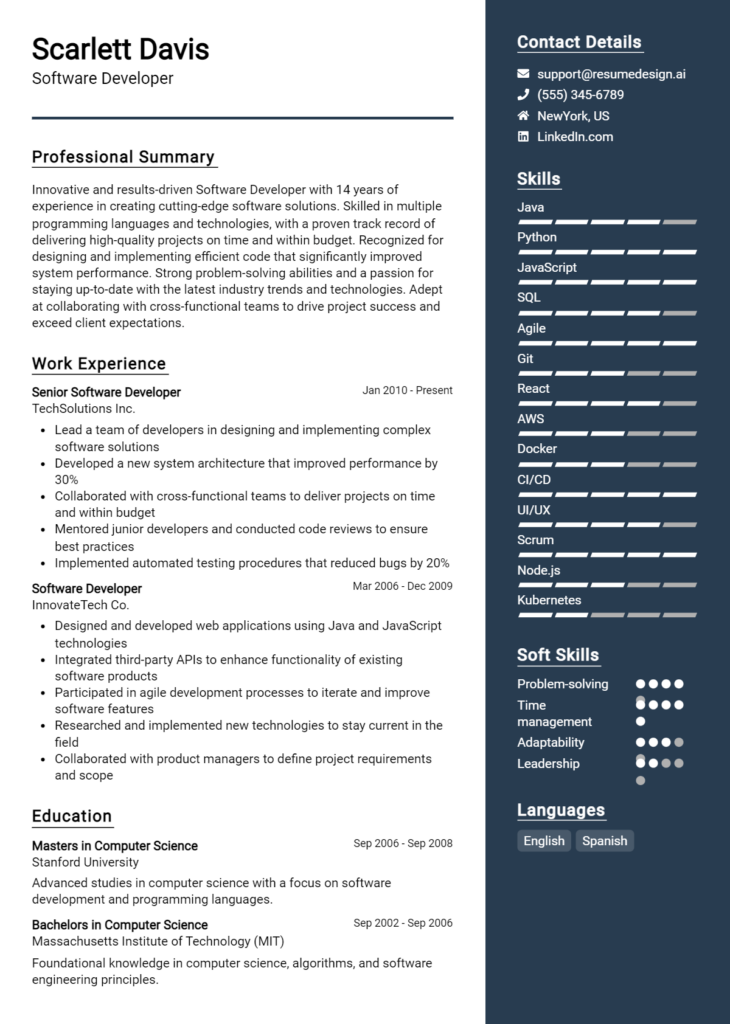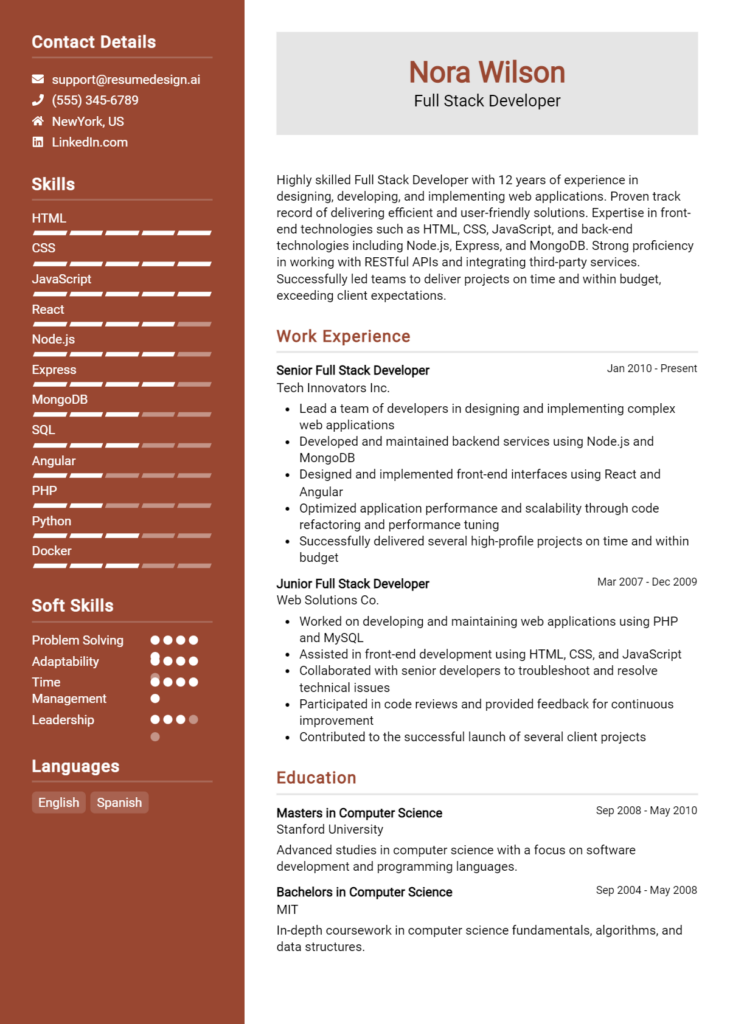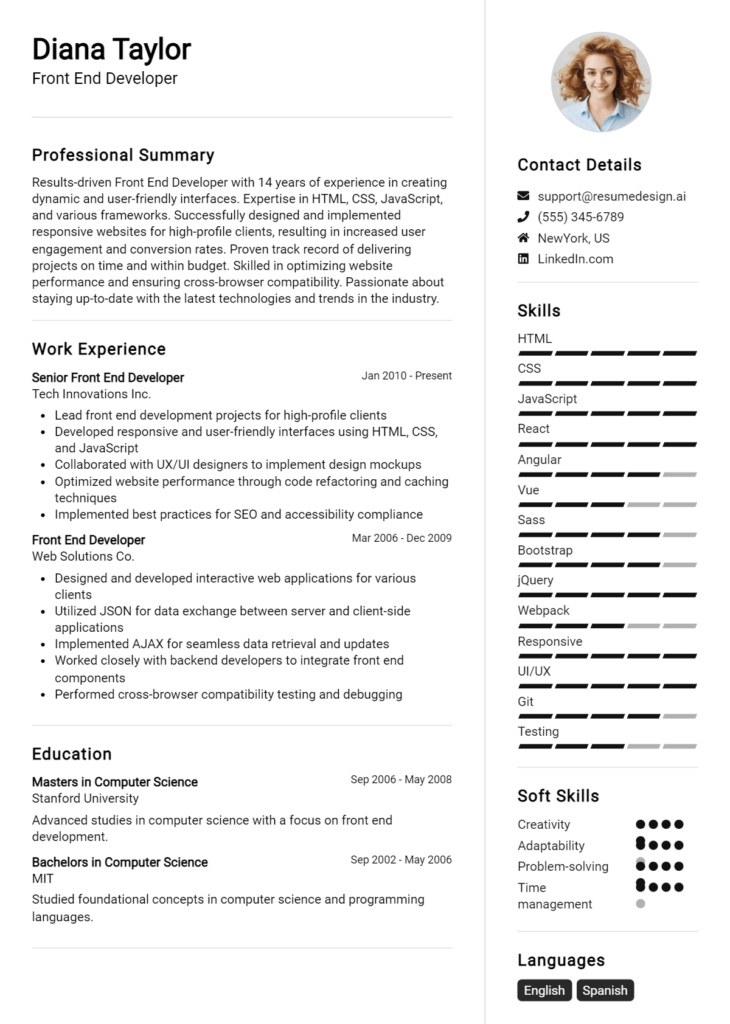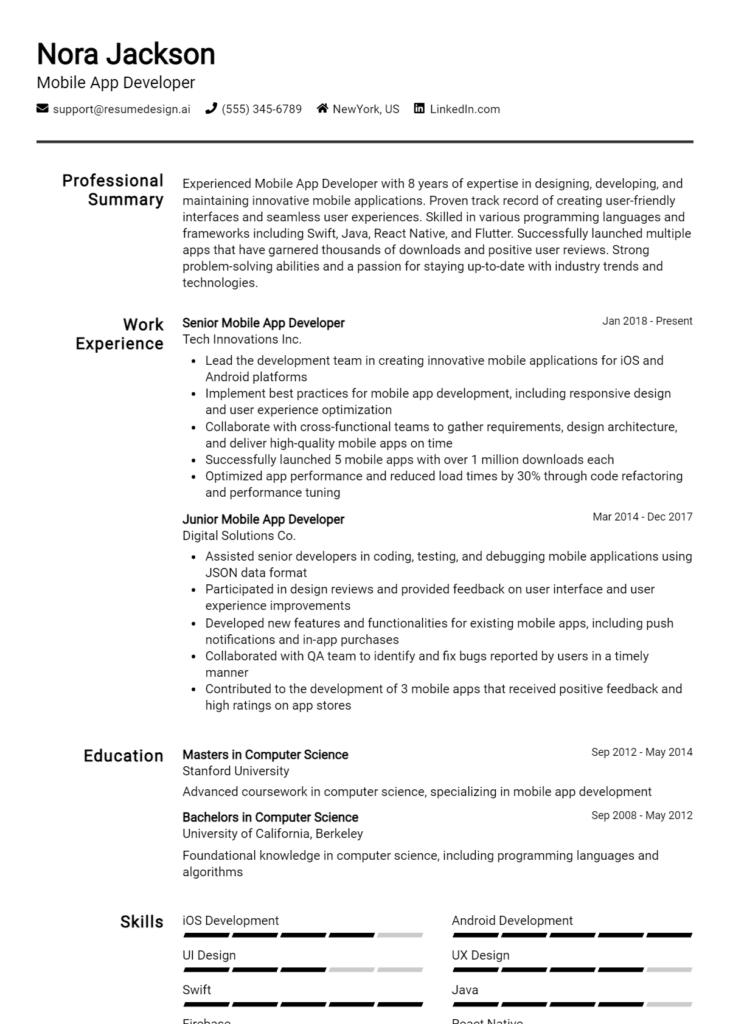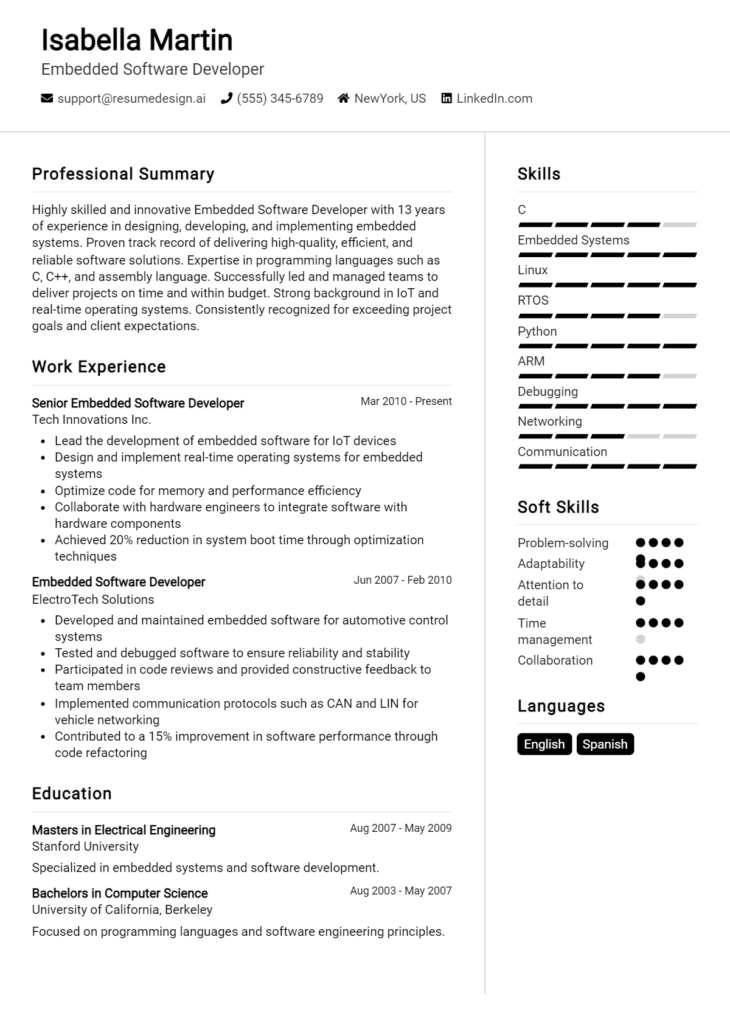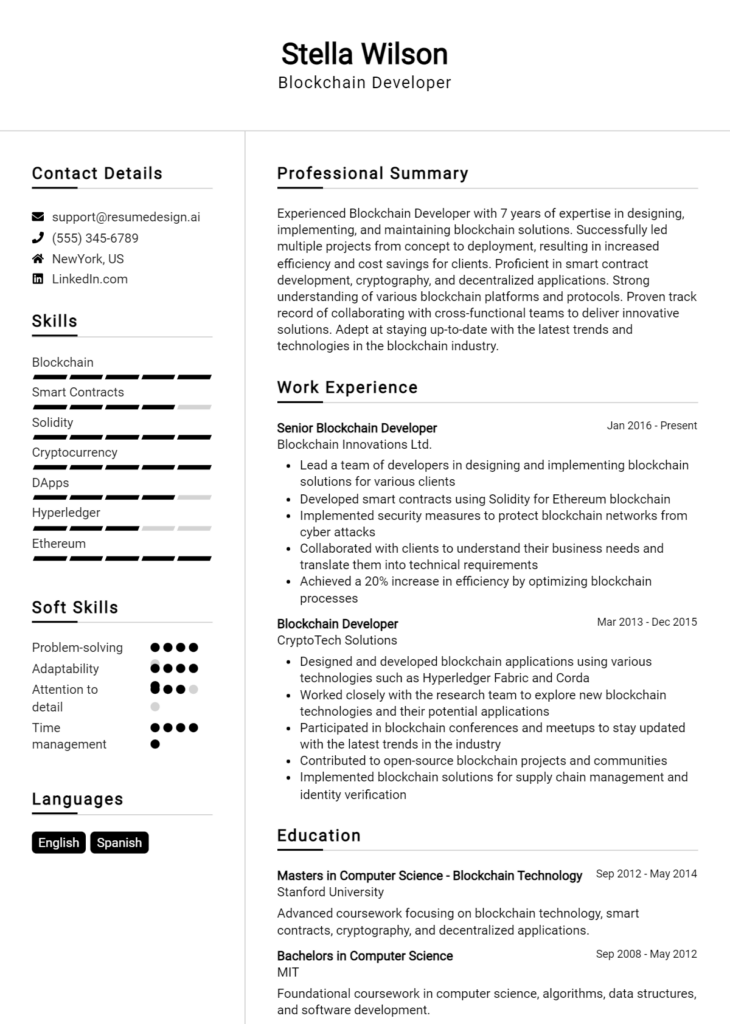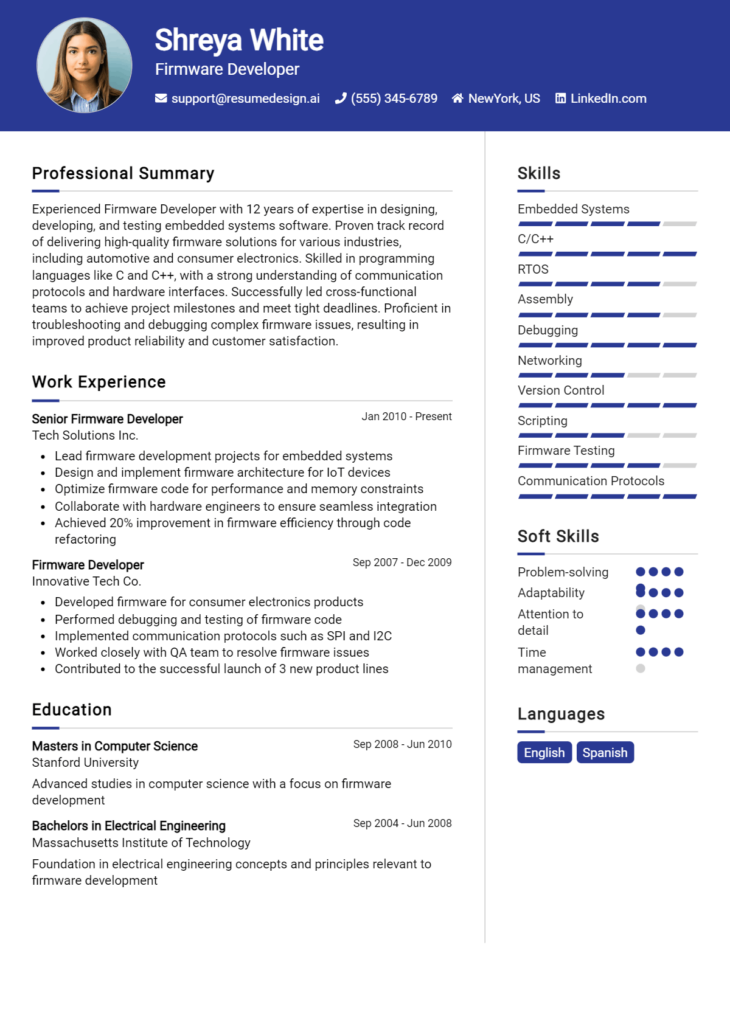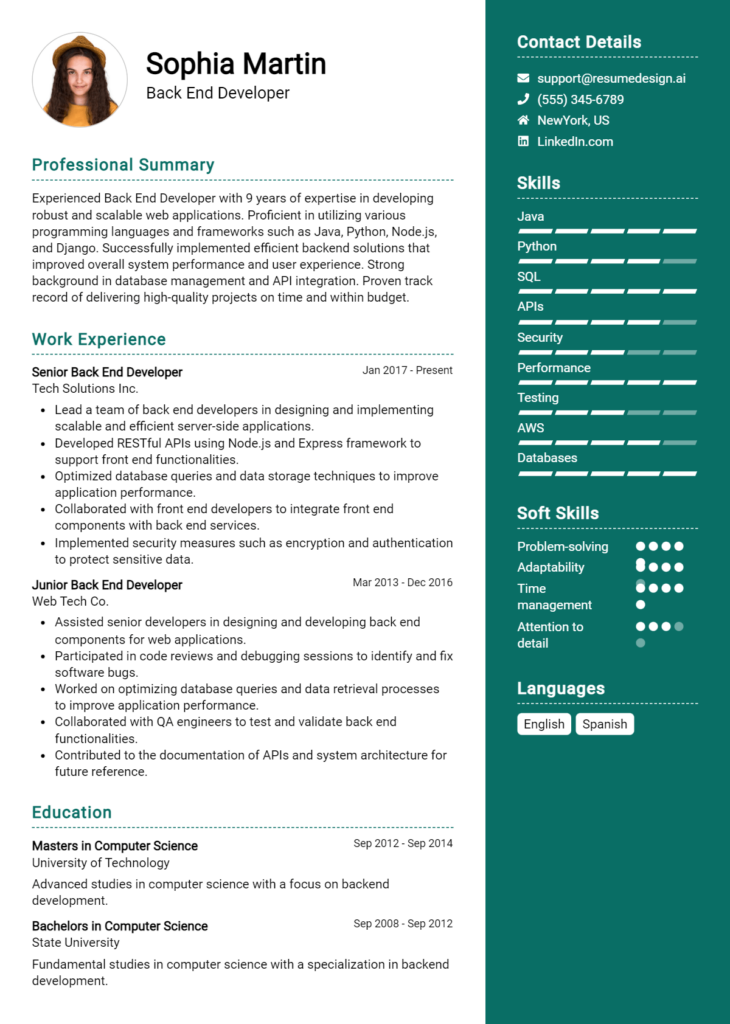Game Developer Core Responsibilities
A Game Developer is responsible for designing, coding, and testing video games, requiring a blend of technical, operational, and problem-solving skills. This role serves as a bridge between various departments, including art, design, and production, ensuring cohesive development and a unified vision. Essential skills such as programming proficiency, creativity, and collaboration are vital for achieving organizational goals. A well-structured resume can effectively highlight these qualifications, showcasing the candidate's ability to contribute to successful game projects.
Common Responsibilities Listed on Game Developer Resume
- Design and implement game mechanics and systems.
- Collaborate with artists and designers to create engaging gameplay experiences.
- Write clean, maintainable code and optimize performance.
- Conduct thorough testing and debugging to ensure game stability.
- Participate in brainstorming sessions to generate innovative ideas.
- Develop and maintain technical documentation for game features.
- Stay updated with industry trends and advancements in technology.
- Assist in project management and milestone tracking.
- Integrate audio and visual assets into the game engine.
- Provide feedback and support to junior developers.
- Engage with the gaming community for player feedback and improvements.
- Collaborate in cross-functional teams to align goals and objectives.
High-Level Resume Tips for Game Developer Professionals
In the competitive world of game development, a well-crafted resume is crucial for standing out in a crowded job market. Your resume serves as the first impression you make on potential employers, and it needs to effectively showcase your unique skills, experiences, and achievements. It’s not just about listing your previous roles; it’s about telling your story in a way that aligns with the demands of the gaming industry. This guide will provide practical and actionable resume tips specifically tailored for Game Developer professionals, helping you to create a document that truly reflects your potential and passion for gaming.
Top Resume Tips for Game Developer Professionals
- Tailor your resume to match the specific job description, using keywords that align with the role to pass through applicant tracking systems.
- Highlight relevant experience by focusing on projects and roles that demonstrate your proficiency in game development.
- Quantify your achievements; for example, mention the number of games developed, user engagement statistics, or performance improvements achieved.
- Showcase your technical skills prominently, including programming languages, tools, and technologies relevant to game development.
- Include a portfolio link that showcases your best work, such as game demos, code samples, or design projects.
- Demonstrate collaboration and teamwork skills, as game development often involves working closely with designers, artists, and other developers.
- Use action verbs and concise language to convey your responsibilities and accomplishments effectively.
- Keep the layout clean and professional; avoid clutter and excessive graphics that may distract from the content.
- Consider including a section for relevant certifications, courses, or game jams that can further validate your skills.
By implementing these tips, you can significantly increase your chances of landing a job in the Game Developer field. A polished and tailored resume not only highlights your qualifications but also demonstrates your commitment to the craft, making you a more attractive candidate to potential employers in this dynamic industry.
Why Resume Headlines & Titles are Important for Game Developer
In the competitive field of game development, a well-crafted resume headline or title is crucial for standing out among numerous applicants. A strong headline serves as a first impression, immediately capturing the attention of hiring managers and summarizing a candidate's key qualifications in a powerful and succinct manner. It should encapsulate the essence of the applicant’s skills, experiences, and career goals, making it easier for employers to recognize the potential fit for their team. Therefore, the headline must be concise, relevant, and directly related to the job being applied for, ensuring it resonates with the specific requirements of the role.
Best Practices for Crafting Resume Headlines for Game Developer
- Keep it concise: Aim for a headline that is no longer than a single sentence.
- Be specific: Tailor your headline to reflect the specific role you're applying for.
- Highlight key skills: Include prominent skills that are relevant to the job description.
- Showcase accomplishments: Mention notable achievements that set you apart from other candidates.
- Use industry keywords: Incorporate terminology that is relevant to the game development industry.
- Maintain professionalism: Avoid slang and overly casual language; stay professional and polished.
- Focus on value: Convey what you can bring to the company rather than just listing your qualifications.
- Revise regularly: Update your headline as needed to align with different job applications.
Example Resume Headlines for Game Developer
Strong Resume Headlines
"Innovative Game Developer with 5+ Years of Experience in Unity and C# Programming"
“Passionate Game Designer Specializing in Immersive User Experiences and Narrative Development”
“Results-Driven Game Programmer with Proven Track Record in AAA Game Development”
“Creative 3D Artist and Game Developer with Expertise in Blender and Unreal Engine”
Weak Resume Headlines
“Game Developer Looking for Opportunities”
“Recent Graduate Interested in Gaming”
The strong headlines are effective because they immediately convey specific skills and experiences that are directly relevant to the game development role, showcasing the candidate's potential contributions to the company. In contrast, the weak headlines fail to impress due to their vague nature and lack of detail, offering little insight into the candidate’s qualifications or what they can bring to the position. A strong headline not only captures attention but also sets the tone for the rest of the resume, encouraging hiring managers to explore further.
Writing an Exceptional Game Developer Resume Summary
A well-crafted resume summary is crucial for game developers looking to catch the eye of hiring managers in a competitive industry. This brief yet powerful section serves as a snapshot of the candidate's skills, experience, and accomplishments, providing a compelling introduction that encourages further reading. An effective summary is concise and impactful, tailored specifically to the job being applied for, allowing candidates to highlight their most relevant strengths and set themselves apart from the competition.
Best Practices for Writing a Game Developer Resume Summary
- Quantify achievements by including specific metrics or results to demonstrate impact.
- Focus on relevant technical skills, such as programming languages, game engines, or software tools.
- Tailor the summary to match the job description, incorporating keywords and phrases from the posting.
- Highlight notable projects or game titles you’ve worked on to establish credibility.
- Keep it concise—aim for 3-5 sentences that deliver maximum information with minimal words.
- Use action-oriented language to convey confidence and decisiveness in your abilities.
- Showcase soft skills, such as teamwork and communication, that are valuable in collaborative environments.
- Maintain a professional tone while allowing your personality to shine through to connect with potential employers.
Example Game Developer Resume Summaries
Strong Resume Summaries
Dynamic game developer with over 5 years of experience in designing and implementing engaging gameplay mechanics for mobile and PC platforms. Successfully launched 3 top-rated games, achieving over 1 million downloads and a 4.8-star average rating on app stores.
Results-driven game programmer proficient in C++ and Unreal Engine, with expertise in AI development and multiplayer systems. Improved game performance by 30% through innovative coding solutions in previous projects, leading to enhanced user satisfaction.
Creative game designer with a passion for storytelling and user experience, having developed over 10 interactive experiences. Recognized for outstanding collaboration with cross-functional teams, resulting in a 25% reduction in project timelines.
Experienced 3D artist and animator with a strong portfolio in character modeling and rigging. Contributed to multiple award-winning games, achieving a 40% increase in player engagement through immersive visual design.
Weak Resume Summaries
Game developer with experience in various projects looking for opportunities in game development.
Enthusiastic about games and technology; I have worked on several game projects and am eager to learn more.
The strong resume summaries effectively communicate the candidates' skills, accomplishments, and relevance to the game development role. They include quantifiable results, specific technologies, and projects that demonstrate the candidate’s impact and expertise. In contrast, the weak summaries are vague and generic, lacking detail and failing to convey measurable outcomes or specific skills, making it difficult for hiring managers to assess the candidates' qualifications effectively.
Work Experience Section for Game Developer Resume
The work experience section of a Game Developer resume is a critical component that provides potential employers with a comprehensive view of a candidate's professional journey. It highlights not only the technical skills acquired over time but also showcases the ability to manage teams and deliver high-quality gaming products. This section is essential for demonstrating how previous roles align with the requirements of the gaming industry, especially when achievements are quantified. By presenting specific metrics and outcomes, candidates can effectively illustrate their impact and relevance in the fast-paced world of game development.
Best Practices for Game Developer Work Experience
- Focus on relevant technical skills such as programming languages, game engines, and development tools.
- Quantify your achievements with metrics, such as user engagement rates, sales figures, or performance improvements.
- Highlight your role in teamwork and collaboration, emphasizing how you contributed to successful projects.
- Use industry-standard terminology to demonstrate familiarity with game development processes.
- Include specific examples of projects, detailing your contributions and the technologies used.
- Tailor your experience to align with the job description, focusing on the most relevant roles.
- Showcase leadership experience, particularly if you managed teams or mentored junior developers.
- Keep descriptions concise and impactful, using action verbs to convey responsibility and results.
Example Work Experiences for Game Developer
Strong Experiences
- Led a team of 5 developers in the creation of an award-winning mobile game that achieved over 1 million downloads within the first month of launch.
- Implemented a new game physics engine that improved rendering performance by 30%, enhancing user experience and engagement.
- Collaborated with designers and artists to develop a cross-platform multiplayer game that generated $500,000 in revenue within the first quarter post-launch.
- Managed the full game development lifecycle for a VR simulation, resulting in a 25% increase in user retention rates compared to previous titles.
Weak Experiences
- Worked on several game development projects.
- Assisted in debugging and fixing bugs in games.
- Participated in team meetings regarding game design.
- Helped to develop a game that was eventually released.
The examples listed as strong experiences effectively demonstrate quantifiable outcomes, technical leadership, and collaboration, providing clear evidence of the candidate's contributions and successes in game development. In contrast, the weak experiences lack specificity and measurable results, making them less impactful and failing to convey the candidate's true potential in the industry. Strong experiences are detailed and aligned with the expectations of employers, while weak experiences come across as vague and unimpressive.
Education and Certifications Section for Game Developer Resume
The education and certifications section of a Game Developer resume is crucial in showcasing a candidate's academic background, industry-relevant certifications, and commitment to continuous learning. This section allows potential employers to assess not only the formal education received but also any specialized training and certifications that enhance the candidate’s skill set. By including relevant coursework and recognized qualifications, candidates can significantly improve their credibility and demonstrate their alignment with the specific requirements of the game development role they are pursuing.
Best Practices for Game Developer Education and Certifications
- Focus on relevant degrees and certifications that directly relate to game development.
- Include specific coursework that enhances your qualifications for the position.
- Highlight industry-recognized certifications, such as Unity Certified Developer or Unreal Engine certifications.
- Be concise yet detailed enough to convey the significance of each credential.
- Keep the formatting consistent and easy to read for better presentation.
- Update this section regularly to reflect new qualifications and ongoing education.
- Consider including online courses or workshops from reputable sources that are relevant to game development.
- Tailor the section to the job description, emphasizing the most pertinent qualifications for each application.
Example Education and Certifications for Game Developer
Strong Examples
- Bachelor of Science in Computer Science, XYZ University, 2021
- Unity Certified Developer, 2022
- Game Development with Unreal Engine, Coursera, 2023
- Advanced Game Programming, ABC Institute, 2020
Weak Examples
- Bachelor of Arts in History, XYZ University, 2010
- Certification in Microsoft Office, 2019
- General Studies Diploma, ABC Community College, 2015
- Online Course in Basic HTML, 2018
The examples provided illustrate strong and weak qualifications based on their relevance to the game development field. Strong examples demonstrate a direct connection to game development through relevant degrees and industry-recognized certifications, showcasing the candidate's preparedness for the role. In contrast, weak examples highlight qualifications that may not contribute to the candidate's suitability for a game developer position, such as unrelated degrees or certifications that lack industry relevance. This distinction is essential for candidates to effectively communicate their qualifications to potential employers.
Top Skills & Keywords for Game Developer Resume
As a Game Developer, showcasing the right skills on your resume is crucial for attracting potential employers and standing out in a competitive job market. A well-crafted resume highlights not only your technical expertise but also your interpersonal abilities, which are vital for collaboration in game development teams. Employers look for candidates who can demonstrate both hard and soft skills, as these traits indicate a well-rounded professional capable of contributing to various aspects of game design and development. Understanding the importance of these skills and effectively presenting them in your resume can significantly enhance your chances of landing the job you desire.
Top Hard & Soft Skills for Game Developer
Hard Skills
- Proficiency in programming languages (e.g., C++, Java, C#)
- Experience with game engines (Unity, Unreal Engine)
- Knowledge of 3D modeling and animation software (Blender, Maya)
- Familiarity with version control systems (Git, SVN)
- Understanding of game physics and mechanics
- Proficient in debugging and optimization techniques
- Experience with user interface (UI) and user experience (UX) design
- Skills in artificial intelligence (AI) development for games
- Knowledge of multiplayer game networking
- Familiarity with game monetization strategies
Soft Skills
- Strong problem-solving abilities
- Excellent communication skills
- Team collaboration and interpersonal skills
- Adaptability and willingness to learn new technologies
- Creative thinking and innovation
- Time management and organizational skills
- Attention to detail
- Passion for gaming and game development
- Critical thinking skills
- Ability to receive and provide constructive feedback
For more information on how to effectively incorporate these skills into your resume, and to showcase your relevant work experience, consider tailoring your resume to reflect the specific requirements of the job you are applying for.
Stand Out with a Winning Game Developer Cover Letter
Dear [Hiring Manager's Name],
I am writing to express my enthusiasm for the Game Developer position at [Company Name], as advertised on [where you found the job posting]. With a solid foundation in computer science and over [X years] of experience in game development, I am excited about the opportunity to contribute to your team and help create engaging and innovative gaming experiences. My passion for gaming, combined with my technical skills in programming languages such as C++, Unity, and Unreal Engine, makes me a strong candidate for this role.
In my previous role at [Previous Company Name], I had the opportunity to lead a project team in developing a critically acclaimed indie game that garnered [specific achievements, e.g., "over 100,000 downloads within the first month"]. I was responsible for the design and implementation of key gameplay mechanics, collaborating closely with artists and sound designers to ensure a cohesive and immersive player experience. My hands-on experience with both front-end and back-end development has sharpened my problem-solving skills and my ability to work under tight deadlines while maintaining a high standard of quality.
I am particularly drawn to [Company Name] because of its commitment to [specific aspect of the company or its games, e.g., "pushing the boundaries of storytelling in gaming"]. I am eager to bring my expertise in game mechanics and user experience design to your team, and I am excited about the potential to collaborate with other talented professionals who share my passion for creating memorable gaming moments. I am confident that my creativity and technical acumen will contribute significantly to your upcoming projects.
Thank you for considering my application. I look forward to the opportunity to discuss how my background, skills, and enthusiasm for game development align with the goals of [Company Name]. I am excited about the possibility of contributing to your innovative projects and being part of a team that is dedicated to delivering exceptional gaming experiences.
Sincerely,
[Your Name]
[Your Contact Information]
[LinkedIn Profile or Portfolio URL]
Common Mistakes to Avoid in a Game Developer Resume
Crafting a compelling resume is crucial for game developers looking to land their next opportunity in a competitive industry. However, many applicants inadvertently make common mistakes that can undermine their chances of securing an interview. Avoiding these pitfalls can significantly enhance the effectiveness of your resume and showcase your skills and experiences more effectively. Here are some common mistakes to steer clear of:
Generic Objective Statements: Using a one-size-fits-all objective fails to convey your specific interest in the position or company. Tailoring your objective can demonstrate your enthusiasm and relevance to the role.
Ignoring Keywords: Many companies utilize applicant tracking systems (ATS) to filter resumes. Not incorporating relevant keywords from the job description can result in your resume being overlooked.
Overly Technical Jargon: While it's important to showcase your technical skills, using excessive jargon can alienate non-technical hiring managers. Aim for a balance that communicates your expertise clearly.
Lack of Quantifiable Achievements: Simply listing responsibilities without highlighting achievements makes it difficult to gauge your impact. Use metrics to quantify your contributions, such as project completion rates or user engagement improvements.
Unorganized Format: A cluttered or poorly structured resume can make it hard for hiring managers to find important information. Use clear headings, bullet points, and consistent formatting to enhance readability.
Failing to Showcase a Portfolio: Game development is a visual and interactive field. Not including a link to your portfolio or relevant projects can leave employers without a sense of your practical skills and creativity.
Neglecting Soft Skills: Game development requires collaboration and communication. Focusing solely on technical skills can overlook essential soft skills like teamwork, problem-solving, and adaptability that are equally important in the industry.
Outdated Information: Including outdated skills or experiences can misrepresent your current capabilities. Regularly updating your resume with recent projects and skills is crucial to reflect your most relevant qualifications.

